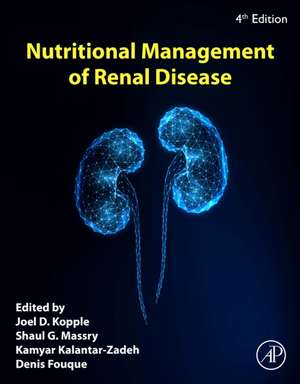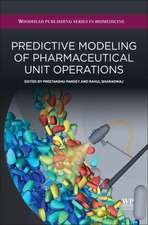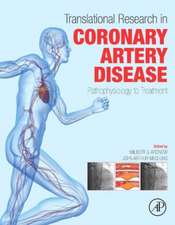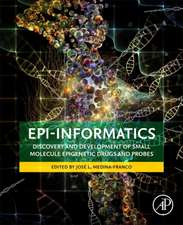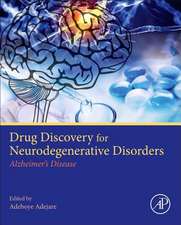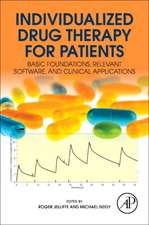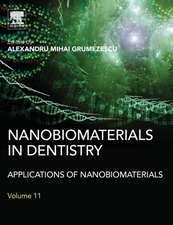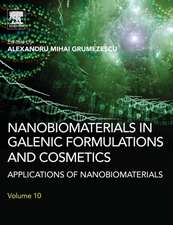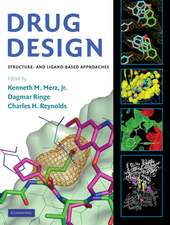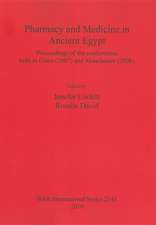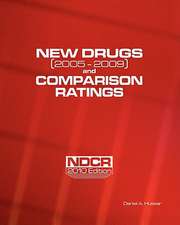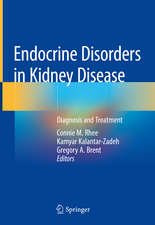Nutritional Management of Renal Disease
Editat de Joel D. Kopple, Shaul G Massry, Kamyar Kalantar-Zadeh, Denis Fouqueen Limba Engleză Hardback – 8 oct 2021
- Includes the latest comprehensive KDOQI clinical practice guidelines for the nutritional management of kidney disease from the National Kidney Foundation and the Academy of Nutrition and Dietetics, covering recommendations for each essential nutrient, as well as for some nonessential nutrients
- Presents a comprehensive, translational look at all aspects of metabolic and nutritional disorders in one reference
- Provides a common language for nephrologists, nutritionists, endocrinologists, and other interested physicians to assimilate information and discuss the underlying research and translation of best practices for the nutritional management and prevention of renal disease
- Saves clinicians and researchers time in quickly accessing the very latest details on nutritional practice as opposed to searching through thousands of journal articles
Preț: 998.80 lei
Preț vechi: 1223.65 lei
-18% Nou
Puncte Express: 1498
Preț estimativ în valută:
191.12€ • 200.05$ • 159.07£
191.12€ • 200.05$ • 159.07£
Carte tipărită la comandă
Livrare economică 24 martie-07 aprilie
Preluare comenzi: 021 569.72.76
Specificații
ISBN-13: 9780128185407
ISBN-10: 0128185406
Pagini: 1040
Ilustrații: 150 illustrations (100 in full color)
Dimensiuni: 216 x 276 x 58 mm
Greutate: 2.92 kg
Ediția:4
Editura: ELSEVIER SCIENCE
ISBN-10: 0128185406
Pagini: 1040
Ilustrații: 150 illustrations (100 in full color)
Dimensiuni: 216 x 276 x 58 mm
Greutate: 2.92 kg
Ediția:4
Editura: ELSEVIER SCIENCE
Public țintă
Residents/fellows/clinical researchers in nephrology, nephrologists, diabetologists, endocrinologists, nutirtionistsCuprins
NORMAL AND ALTERED METABOLISM OF CHRONIC KIDNEY DISEASE
1. The KDOQI/AND Clinical Practice Guidelines for Nutrition in Kidney Disease
2. The Influence of Kidney Disease on Protein and Amino Acid Metabolism
3. Carbohydrate Metabolism in Kidney Disease and Kidney Failure
4. Altered Lipid Metabolism and Serum Lipids in Kidney Disease and Kidney Failure
5. Energy Metabolism and Energy Requirements in Chronic Kidney Disease
6. Uremic Toxicity
7. Inflammation in Kidney Disease
8. Oxidative Stress and Catalytic (Labile) Iron in Kidney Disease
9. Carbonyl Stress in Kidney Disease
10. Effect of Acidemia and Alkalemia on Nutrition and Metabolism
11. The Human Microbiome in Kidney Disease
TREATMENT OF ALTERED METABOLISM IN CHRONIC KIDNEY DISEASE
12. Assessment and Risk Factors for Protein-Energy Status and Frailty in Chronic Kidney Disease
13. Causes and Treatment of Protein-Energy Wasting in Kidney Disease
14. Prevention and Management of Cardiovascular Disease in Kidney Disease and Kidney Failure
15. Effect of Nutritional Status and Changes in Nutrient Intake on Renal Function
NUTRITION AND SLOWING OF PROGRESSIVE CHRONIC KIDNEY DISEASE
16. Low Protein, Amino Acid and Ketoacid Diets to Slow the Progression of Chronic Kidney Disease and Improve Metabolic Control of Uremia
17. Disorders of Phosphorus Homeostasis: Potential Targets for Therapy of Progressive Kidney Disease
18. Therapeutic Strategies for the Toxic Effects of Tryptophan Metabolites
19. Alkalization to Retard Progression of Chronic Kidney Failure
MINERAL AND VITAMIN METABOLISM IN KIDNEY DISEASE
20. Nutritional Management of Sodium, Chloride and Water in Kidney Disease and Kidney Failure
21. Management of Potassium in Chronic Kidney Disease and Acute Kidney Injury
22. Magnesium and Kidney Disease
23. Calcium, Phosphorus, PTH, FGF-23, Vitamin D and Renal Bone Disease
24. Phosphorus Metabolism and Fibroblast Growth Factor 23 in Chronic Kidney Disease
25. Vitamin D in Kidney Disease
26. Vitamin Metabolism and Requirements in Kidney Disease and Kidney Failure
27. Trace Elements, Toxic Metals, and Metalloids in Kidney Disease
NUTRITIONAL MANAGEMENT OF CLINICAL CONDITIONS ASSOCIATED WITH KIDNEY DISEASE
28. Nutritional and Non-Nutritional Management of Proteinuria and the Nephrotic Syndrome
29. Overview of the Nutritional Management of Non-Dialyzed Chronic Kidney Disease Patients
30. Use of Dietary Therapy in Far Advanced Chronic Kidney Disease to Delay Renal Replacement Therapy or Facilitate Infrequent Dialysis
31. Nutritional Management of Maintenance Hemodialysis Patients
32. Nutritional Management of Chronic Peritoneal Dialysis Patients
33. Nutritional Management of Kidney Transplantation
34. Nutritional Management of the Pediatric Patient with Kidney Disease
35. Nutritional Management of Acute Kidney Injury
36. Nutritional Prevention and Treatment of Urinary Tract Stones
37. Nutrition and Blood Pressure
38. Nutrition and Anemia in Chronic Kidney Disease
OBESITY, METABOLIC SYNDROME AND DIABETES MELLITUS
39. Effect of Obesity and the Metabolic Syndrome on Incident Kidney Disease and the Progression to Chronic Kidney Failure
40. Nutritional and Metabolic Management of Obesity and the Metabolic Syndrome in Patients with Chronic Kidney Disease
41. Bariatric Surgery and Kidney Disease
42. Nutritional and Metabolic Management of the Diabetic Patient with Chronic Kidney Disease
43. Uric acid, Fructose, Purines and Kidney Disease
SPECIAL TECHNIQUES FOR DELIVERY OF NUTRIENTS
44. Oral and Enteral Supplements in Kidney Disease and Kidney Failure
45. Intradialytic Parenteral Nutrition, Intraperitoneal Nutrition and Nutritional Hemodialysis
46. Nutritional Management of Patients Treated with Continuous Renal Replacement Therapy
47. Motivating the Kidney Disease Patient to Nutrition Adherence and Other Healthy Lifestyle Activities
48. Anorexia and Appetite Stimulants in Chronic Kidney Disease
49. Herbal Supplements in Patients with Kidney Disease
50. Drug Nutrient Interactions in Renal Failure
PREVENTION OF FRAILTY AND IMPROVEMENT OF PHYSICAL PERFORMANCE
51. Physical Exercise Training for Kidney Disease Patients
52. Use of Anabolic and Anti-Antigrowth Agents in Kidney Disease and Kidney Failure
53. Non-Nutritional and Non-Hormonal Methods Effects on Muscle Strength and Physical Performance
1. The KDOQI/AND Clinical Practice Guidelines for Nutrition in Kidney Disease
2. The Influence of Kidney Disease on Protein and Amino Acid Metabolism
3. Carbohydrate Metabolism in Kidney Disease and Kidney Failure
4. Altered Lipid Metabolism and Serum Lipids in Kidney Disease and Kidney Failure
5. Energy Metabolism and Energy Requirements in Chronic Kidney Disease
6. Uremic Toxicity
7. Inflammation in Kidney Disease
8. Oxidative Stress and Catalytic (Labile) Iron in Kidney Disease
9. Carbonyl Stress in Kidney Disease
10. Effect of Acidemia and Alkalemia on Nutrition and Metabolism
11. The Human Microbiome in Kidney Disease
TREATMENT OF ALTERED METABOLISM IN CHRONIC KIDNEY DISEASE
12. Assessment and Risk Factors for Protein-Energy Status and Frailty in Chronic Kidney Disease
13. Causes and Treatment of Protein-Energy Wasting in Kidney Disease
14. Prevention and Management of Cardiovascular Disease in Kidney Disease and Kidney Failure
15. Effect of Nutritional Status and Changes in Nutrient Intake on Renal Function
NUTRITION AND SLOWING OF PROGRESSIVE CHRONIC KIDNEY DISEASE
16. Low Protein, Amino Acid and Ketoacid Diets to Slow the Progression of Chronic Kidney Disease and Improve Metabolic Control of Uremia
17. Disorders of Phosphorus Homeostasis: Potential Targets for Therapy of Progressive Kidney Disease
18. Therapeutic Strategies for the Toxic Effects of Tryptophan Metabolites
19. Alkalization to Retard Progression of Chronic Kidney Failure
MINERAL AND VITAMIN METABOLISM IN KIDNEY DISEASE
20. Nutritional Management of Sodium, Chloride and Water in Kidney Disease and Kidney Failure
21. Management of Potassium in Chronic Kidney Disease and Acute Kidney Injury
22. Magnesium and Kidney Disease
23. Calcium, Phosphorus, PTH, FGF-23, Vitamin D and Renal Bone Disease
24. Phosphorus Metabolism and Fibroblast Growth Factor 23 in Chronic Kidney Disease
25. Vitamin D in Kidney Disease
26. Vitamin Metabolism and Requirements in Kidney Disease and Kidney Failure
27. Trace Elements, Toxic Metals, and Metalloids in Kidney Disease
NUTRITIONAL MANAGEMENT OF CLINICAL CONDITIONS ASSOCIATED WITH KIDNEY DISEASE
28. Nutritional and Non-Nutritional Management of Proteinuria and the Nephrotic Syndrome
29. Overview of the Nutritional Management of Non-Dialyzed Chronic Kidney Disease Patients
30. Use of Dietary Therapy in Far Advanced Chronic Kidney Disease to Delay Renal Replacement Therapy or Facilitate Infrequent Dialysis
31. Nutritional Management of Maintenance Hemodialysis Patients
32. Nutritional Management of Chronic Peritoneal Dialysis Patients
33. Nutritional Management of Kidney Transplantation
34. Nutritional Management of the Pediatric Patient with Kidney Disease
35. Nutritional Management of Acute Kidney Injury
36. Nutritional Prevention and Treatment of Urinary Tract Stones
37. Nutrition and Blood Pressure
38. Nutrition and Anemia in Chronic Kidney Disease
OBESITY, METABOLIC SYNDROME AND DIABETES MELLITUS
39. Effect of Obesity and the Metabolic Syndrome on Incident Kidney Disease and the Progression to Chronic Kidney Failure
40. Nutritional and Metabolic Management of Obesity and the Metabolic Syndrome in Patients with Chronic Kidney Disease
41. Bariatric Surgery and Kidney Disease
42. Nutritional and Metabolic Management of the Diabetic Patient with Chronic Kidney Disease
43. Uric acid, Fructose, Purines and Kidney Disease
SPECIAL TECHNIQUES FOR DELIVERY OF NUTRIENTS
44. Oral and Enteral Supplements in Kidney Disease and Kidney Failure
45. Intradialytic Parenteral Nutrition, Intraperitoneal Nutrition and Nutritional Hemodialysis
46. Nutritional Management of Patients Treated with Continuous Renal Replacement Therapy
47. Motivating the Kidney Disease Patient to Nutrition Adherence and Other Healthy Lifestyle Activities
48. Anorexia and Appetite Stimulants in Chronic Kidney Disease
49. Herbal Supplements in Patients with Kidney Disease
50. Drug Nutrient Interactions in Renal Failure
PREVENTION OF FRAILTY AND IMPROVEMENT OF PHYSICAL PERFORMANCE
51. Physical Exercise Training for Kidney Disease Patients
52. Use of Anabolic and Anti-Antigrowth Agents in Kidney Disease and Kidney Failure
53. Non-Nutritional and Non-Hormonal Methods Effects on Muscle Strength and Physical Performance
